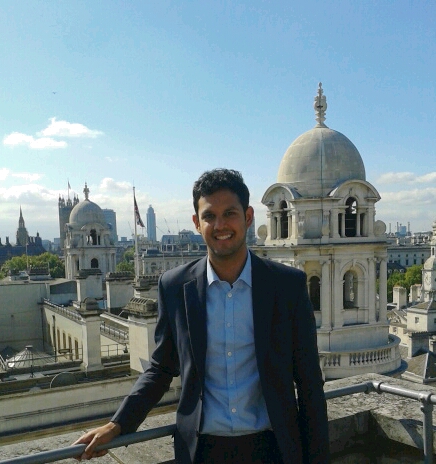Dev Tayal, Jesus College, 2012-13
Dev is from Perth, and studied Electrical Engineering and Commerce at the University of Western Australia. Since graduating in 2008, Dev has had a variety of professional experiences - working as a management consultant, electrical engineer and renewable energy specialist across Australia, Laos, Samoa, India and the UK.
Dissertation title: Designing Sustainable Cities: Urban Transport Innovations
Supervised by Dr Douglas Crawford-Brown - Director, Cambridge Centre for Climate Change Mitigation Research (4CMR)
Students report:
After completing my undergraduate studies, I’ve had a variety of experiences across an eclectic range of organisations, working at large private corporations, small start-up NGOs right through to Government institutions and the UN. Whilst diverse in their environments, these experiences all enabled me to cultivate my interest in renewable energy, sustainability, climate change and public policy. They also taught me how little I knew! I began to see graduate studies as a way to fill some of those gaps but had never come across a program that offered a flexible selection of courses across all my interests. And then I came across the ESD MPhil.
The one year course provided a fantastic introduction to the wide range of topics covered under the sustainable development banner. Having the freedom to pick and choose courses from across Engineering, Land Economy, Policy Departments, and even the Business School, provided the perfect opportunity to further refine my particular interests, but also to drop-in and gain an understanding of research I might otherwise never be exposed to. The Professors’ pragmatic approach to learning and personal development was also a refreshing change to the undergraduate mentality I was previously exposed to. Through the ESD course we were all encouraged from day one to think of the course within the wider context of University opportunities – not just to memorise technical facts and figures in a library, but to engage and debate philosophical topics, present at conferences, initiate change in ourselves or our colleges, and generally explore the many opportunities Cambridge offers as a centre of learning.
Since finishing the course, I’ve been working at the Department of Energy and Climate Change in London, advising the UK Government on energy and policy design to incentivise investment in low-carbon energy generation.

